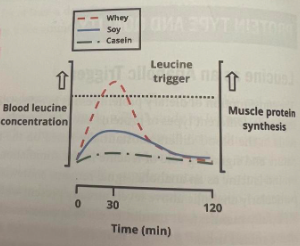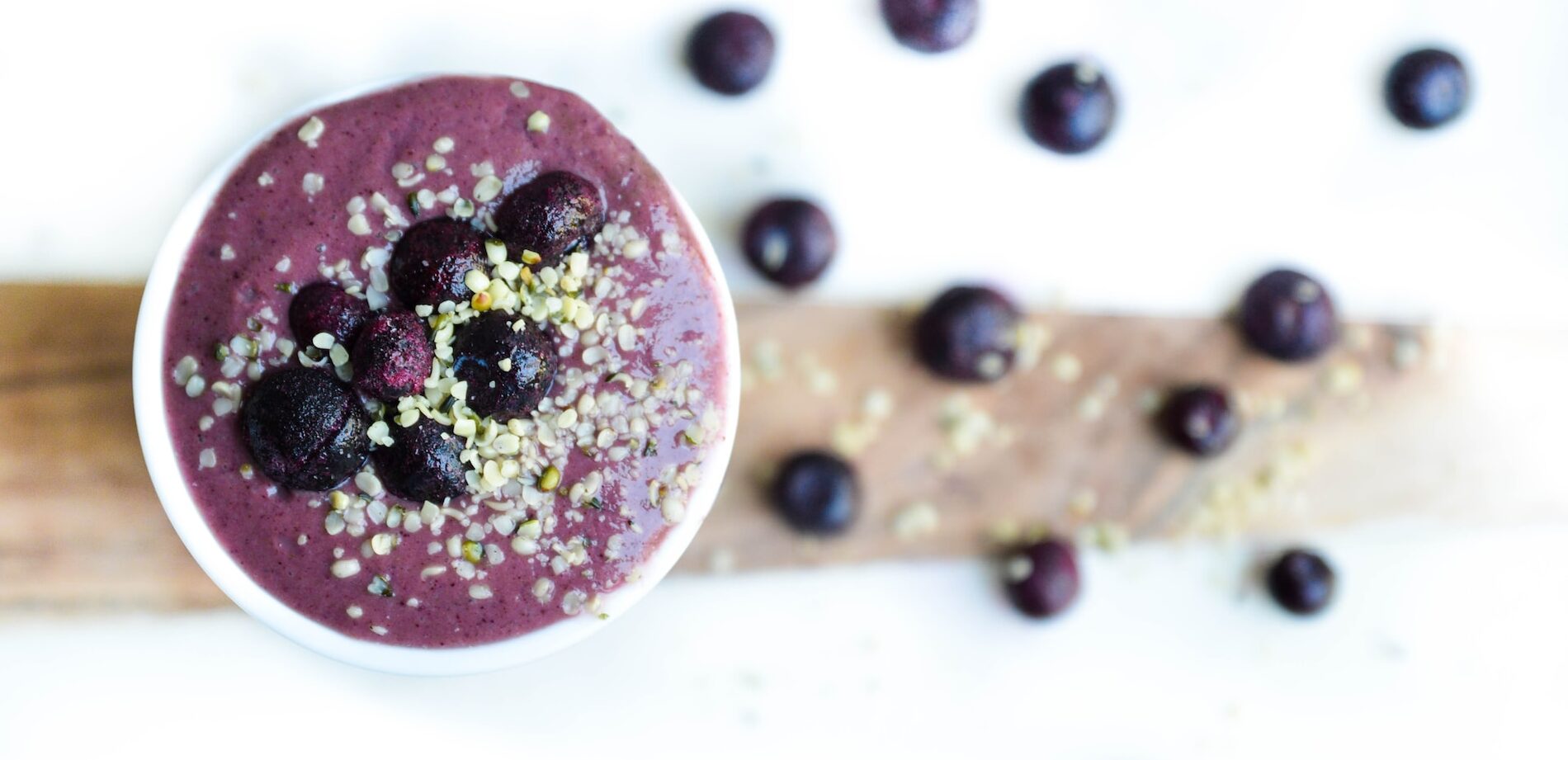As a plant-based skier or snowboarder, you may be wondering whether your vegetarian or vegan diet is affecting your performance. While it is definitely possible to optimize your performance on a plant-based diet, it does take some strategy — especially when it comes to exercise recovery.
Some essential amino acids present a bigger challenge to intake as a plant-based athlete, such as leucine. Leucine is a key player in your exercise recovery by triggering muscle growth and repair while reducing fatigue and soreness. Whether you’re looking to optimize your recovery from a day on the mountain or after your ski training session, you are not going to want to skip on getting enough leucine.
What are amino acids and why are they important?
Let’s start at the beginning: you need protein for muscle repair and building, and proteins are made from amino acids. There are 20 amino acids all with varying roles and functions within the body. Out of those 20, there are 11 amino acids that your body creates itself- so you don’t need to intake these from your diet. These are called non-essential (1).
Your body cannot produce the remaining 9 amino acids on its own, meaning that you need to get them through food. These are referred to as essential amino acids (1).
To dive in a bit deeper, of those 9 essential amino acids, there are 3 branch chain amino acids, or BCAAs. These are valine, isoleucine, and leucine. Studies show that BCAAs, particularly leucine, may help to:
- Reduce soreness
- Decrease muscle wasting
- Lessen fatigue
- Increase muscle growth (2)
Here’s the kicker, the foods highest in leucine tend to be animal-based sources like beef, chicken, and eggs. As a plant-based skier or snowboarder, you can still receive all of the recovery benefits of leucine from plant sources with a game plan and a bit of knowledge.
How leucine works for muscle recovery after your ski & snowboard workouts
Leucine triggers muscle protein synthesis, which is the process for muscle growth. It may be able to do this because it is insulinogenic. Which means it increases insulin production, which increases the transport and absorption of other amino acids into the muscles, using the amino acid transporter, LAT1 (2).
With that said, eating ski food rich in high quality protein, or proteins containing all of the essential amino acids is going to benefit your performance the most (2). Leucine helps by getting those amino acids into the muscles and is kind of like the cherry on top of an already well rounded diet.
Plant-based leucine sources for vegan and vegetarian athletes
You may already be familiar with a few common sources of leucine as a plant-based skier or snowboarder. The chart below shows the trigger points for muscle protein synthesis using the same amounts consumed of whey, casein, and soy.
- Whey is a soluble fraction from milk from the process of making cheese.
- Casein is the acid-insoluble fraction of protein from milk after exposure to an acidic environment.
- Soy is a vegetable protein found in soybeans (2).
Whey contains 14% of leucine which is higher than the 10% of leucine in milk. The higher levels of leucine may be the reason that it triggers muscle protein synthesis faster than milk and soy. It’s not about the source itself, but moreso the total amount of leucine in each of the three (2).

Image: Sports Nutrition: A Handbook for Professionals
Additionally, a separate study using similar levels of leucine in the same amounts of both pea protein and whey showed the two to be equally effective in promoting muscle gains over an 8-week period (3).
How much leucine do you need after exercises for skiing and snowboarding?
Whether you want to optimize your muscle recovery after a workout or a day on the mountain, research suggests aiming for at least 2.5g of leucine within 30 minutes to 2 hours to trigger the highest level of muscle protein synthesis — aka “gains.” (4). Plant-based sources may be harder for the body to absorb, so getting between 2.5-3.0 g of leucine is recommended if it is coming from a plant-based source (2).
We touched on the most common animal sources for leucine, so as a plant-based winter athlete, you may be wondering, what foods should you be looking for post workout? The plant-based foods highest in leucine are:
- ½ cup Firm Tofu – 1.51 g L
- ½ cup Soft Tofu – 0.62 g L
- ½ cup Black Beans – 0.61 g L
- ½ Lentils or Pinto Beans – 0.65 g L
- 2 Tbsp Peanut Butter – 0.49 g L
If you do eat dairy, some great sources are:
- 1 cup 2% Milk – 0.81 g L
- ½ cup Cottage Cheese – 1.34 g L
- 1 oz Swiss Cheese – 0.84 g L
- 1 cup Low-Fat Yogurt – 1.2 g L
- 1 oz Cheddar Cheese – 0.68 g L (2)
Key Takeaways:
Of the 9 amino acids that we must get through the food we eat, consuming 2.5-3.0 g of leucine within 30 minutes to 2 hours of a workout has shown to improve muscle recovery, reduce soreness, and trigger muscle protein synthesis. Leucine is most commonly in animal-based sources like eggs, beef, and chicken; however, it’s not to say that plant-based sources aren’t a great option as well.
Making an after-workout smoothie using soft tofu and peanut butter as some ingredients is a great option for better muscle recovery and rebuilding. Eating a diet rich in essential amino acids is the first step to muscle protein synthesis and adding in leucine post workout will optimize recovery, less soreness, and gain lean muscle mass to take your ski workout to the next level.
Want to Learn More?
Check out Own It Nutrition’s Nutrition Foundations Courses for skiers and riders! These nutrition courses for skiers and snowboarders are self-paced, so you can learn on your own time. Want your questions answered live? Become a FUEL360 member!

